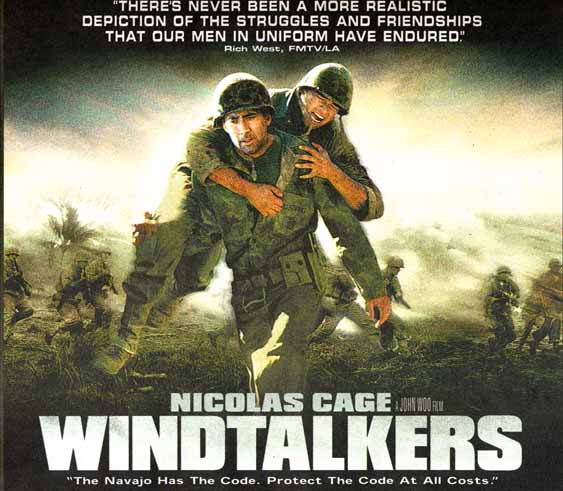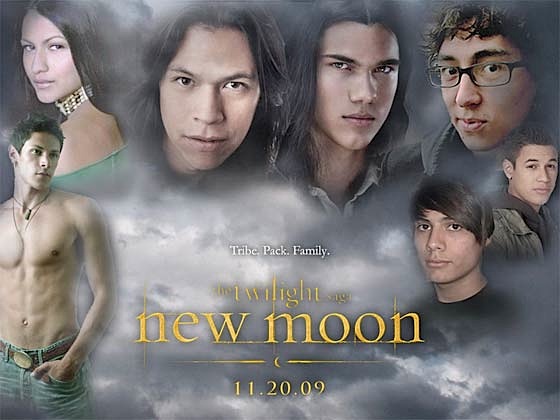5 Old-Timey Prejudices That Still Show Up in Every Movie
By J.F. Sargent
Quick: name a horror movie where one of the good guys is black. Well, hell, that's easy. One of the ship's crew in Alien was black, and some of the soldiers in Aliens. Danny Glover was the cop in Saw, Carl Weathers was one of the squad in Predator. Lawrence Fishburne in Predators. Hell, there are lots of them.
Now count how many of them survived to the end.
Even in the 21st century, with a black president and posters of black athletes adorning bedroom walls all across the world, white audiences still prefer to watch white characters.
It would be easy to argue that the box office numbers are skewed because, say, Fellowship of the Ring was simply a better movie than Big Momma's House. But you can get the same results from focus groups with everything else being equal. In this 2011 study, white undergraduates were given the synopses of 12 made-up romantic comedies. Along with the summaries, they got cast pictures and fake IMDB pages, which were manipulated so that each movie had six versions of the cast; an all-white cast, an all-black cast and four different versions in between.
Same plot, same characters, same everything--just different cast members. And unfortunately, the whiter the cast, the higher the likelihood of the students wanting to see the movie.
So how does this play out in real movies? Black characters end up in supporting roles, instead of being well-developed characters. They're just there so we can "judge the other (white) characters by how they treat them." In other words, we certainly don't root for racist characters, and we'll boo racist stereotypes. But our open-mindedness usually stops at the point of actually paying to see a black leading man. Other than Will Smith.

And the top old-timey prejudice:
We're not exactly blowing your mind when we say that 300 had some slight historical inaccuracies when it came to the race of its heroes, or that Jesus was not exactly the European-looking Superman we're used to seeing in movies, paintings and bumper stickers.
What's weirder is when the movie pretends to be about the triumph of a minority character, but instead spends all its time talking about the white people who save him. Like in The Blind Side, which was supposed to be about Michael Oher, a poor black kid who ended up being adopted by a wealthy white family and going to college on a football scholarship. The movie is, of course, all about the white family. Michael Oher is just a thing that needs to be taken care of, not an actual character.
Money. Once again, it's money. To get white people in the theater seats, the story has to revolve around white people.
And the phenomenon isn't even limited to stereotypes--Stuck, a movie about an African-American woman who is convicted of murder, had to cast a white woman in the lead role to get financed because, as one casting director pointed out, "It's about getting the movie done. Everyone is looking to make their money back." And as we already covered, black actresses don't bring in money. Giving white actresses cornrows, on the other hand, apparently will.
Or take The Help, a story about how the American civil rights movement affected the home lives of privileged white college graduates who have a book deal. That wouldn't really be a problem (you don't always have to tell the biggest story) if it weren't for the fact that it's one of the very few big-budget movies made about the civil rights movement. Ever. And just like Mississippi Burning, Ghosts of Mississippi and Driving Miss Daisy, the story is told from a white perspective.
Movies such as Think Like a Man and Karate Kid prove that minority-led movies can succeed. The lack of such movies is Hollywood's fault.
Studios could create minority stars by putting them in small-budget movies and building them up. Or by putting them in franchise movies such as The Lone Ranger, The Hunger Games, Transformers, etc. No one's gonna skip a blockbuster movie because the lead character happens to be a minority.
Avatar and Twilight remain two great examples of this. No one went to see Avatar because Sam Worthington played the lead role. And no one skipped Twilight because (they thought) Taylor Lautner was an Indian. The movies would've been equally successful with minorities playing these roles.
That Hollywood doesn't do this is because it's fundamentally conservative and racist. As I've said many times before.
For more on the subject, see Bottom-Line Argument Is Racist and Patel's Struggle Shows Hollywood's Racism.
Below: Someone audiences managed to overcome their alleged antipathy toward minorities.


3 comments:
To be fair, Twilight is about the white people (some of whom are so white they sparkle), and Taylor Lautner isn't really an Indian anyway.
@dmarks:
Chuck Norris will kick your butt for saying he's a liberal. Also, I should point out that Ronald Reagan, Sonny Bono, and Arnold Schwarzenegger are all Hollywood politicians.
It just hapepns that Rush Limbaugh likes to rail against "Hollywood liberals", but in reality, Hollywood sells the status quo. Some men just want to watch the world burn.
Anon: I said most, not all. The excepts, though few, are notable.
" but in reality, Hollywood sells the status quo"
Which to them, must happen to be leftist/liberal/etc.
It all depends, but basically, most film producers
A lot of it's also a case of misblame. So they talk about "Hollywood liberals" making a film like Transamerica, when it's really an independent film.
Post a Comment